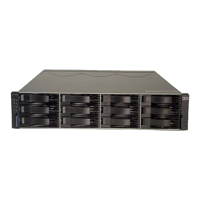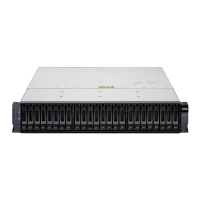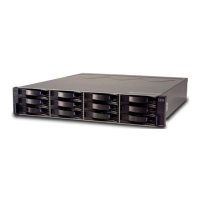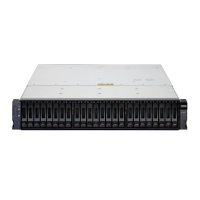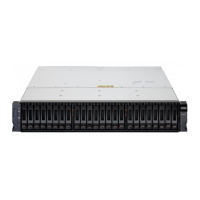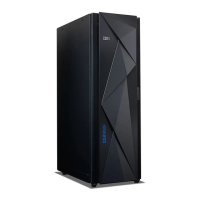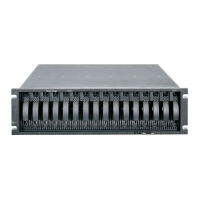Chapter 17. iSCSI configuration 2 - Software Initiator on Red Hat Linux 391
Draft Document for Review August 30, 2007 12:59 am 7065iSCSI_Config2.fm
iqn.1987-05.com.cisco:01.acbd55bbb9af
[root@hooghly ~]#
/etc/iscsi.conf
The second configuration file is /etc/iscsi.conf and is used to configure the iSCSI software
initiator itself. This configuration file is well documented in its man page and with comments in
the configuration file itself. After installation, the file contains only comments and needs to be
modified at least with a discovery address. Without the discovery address the daemon will fail
to start. Edit /etc/iscsi.conf and make the modifications shown in Example 17-5.
Example 17-5 configuration of the iSCSI software initiator
DiscoveryAddress=172.16.3.1:3260
HeaderDigest=always
DataDigest=always
Targetname=iqn.1992-01.com.lsi:1535.00000000000000000000000000000000
Enabled=yes
ConnFailTimeout=15
The field
DiscoveryAddress contains the IP address of one of the iSCSI interfaces of the
DS3300 - only one address needs to be specified. The response of the sendTargets host
command will contain the addresses of all four iSCSI interfaces.
HeaderDigest and DataDigest are both set to always. This option requires the use of CRC
checks to detect corrupt iSCSI PDUs. This will increase the stability of the iSCSI connection.
Targetname specifies the IQN of the DS3300. The last two options (Enabled and
ConnFailTimeou
t) are local options that are only valid for the specific Targetname (IQN
iqn.1992-01.com.lsi:1535.00000000000000000000000000000000 in this case). Global
settings start at the beginning of a line, local settings are always indented with a space or tab.
A local setting follows a global setting and overwrites an already defined global setting.
Start iSCSI daemon
After the configuration modifications are done, start the iSCSI daemon to generate the iSCSI
qualified name of the host. This is only required if the IQN was not set manually.
Example 17-6 shows the output of the command service iscsi start that is used to load
the kernel modules for the iSCSI support.
Example 17-6 Load iSCSI driver
[root@hooghly ~]# service iscsi start
Checking iscsi config: [ OK ]
Loading iscsi driver: [ OK ]
Starting iscsid: [ OK ]
[root@hooghly ~]#
Some status and error information is logged to stdout on the host as well as to the standard
log files. The IQN can be retrieved from /etc/initiatorname.iscsi to be used during host
mapping on the DS3300.
